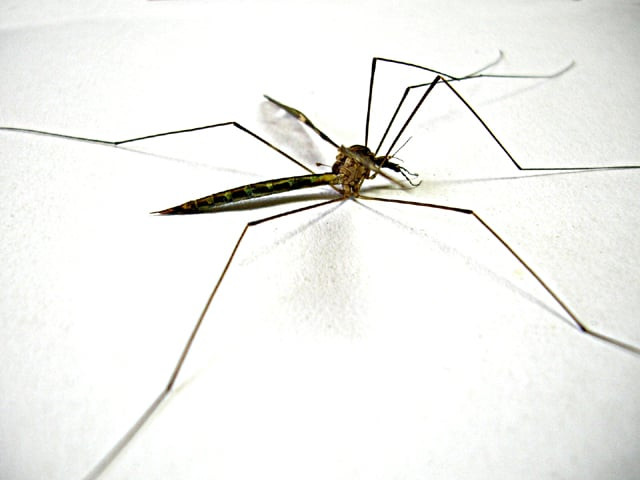Govt claims only 250 dengue cases in hospitals
The mosquito bites during the day, officials call for precautions.

Govt claims only 250 dengue cases in hospitals
According to the report, 1,100 dengue patients were reported in the last eight months in Punjab out of which 907 cases occurred in Lahore. Only 33 new cases were reported on Sunday.
Pakistan Medical Society (PMS) chairman Dr Masood Akhtar Sheikh talking about the ‘Dengue free Pakistan Initiative,’ a new program launched by PMS, in collaboration with the Mother and Child Trust, said the emphasis for dengue prevention is on sustainable, community-based, integrated mosquito control, with limited reliance on insecticides).
Preventing an epidemic requires a coordinated community effort to increase awareness about the dengue-carrying mosquito and how to recognise it and to control the mosquito that transmits it, he added.
Dr Sheikh said seminars had been planned to create public awareness about dengue. The main aim of the initiative is to mal the citizens realise that they are responsible for keeping their yards and patios free of standing water where mosquitoes grow.
He added that children and those suffering their first dengue infection tend to have a milder illness than adults. If they feel worse (for example if they, start vomiting or have severe abdominal pain) in the first 24 hours after the fever declines, they should immediately go to a hospital.
Dr Sheikh said that there was no vaccine for dengue. The best preventive measure for people infested with Aedies Egypti is to eliminate places where the mosquito lays her eggs. Items that collect rainwater or where water is stored (for example, plastic containers and automobile tires) should be covered or discarded, he said.
Water containers for pets and vases with fresh flowers should be emptied and cleaned (to remove eggs) at least once a week as this will eliminate mosquito eggs and larvae and reduce the number of mosquitoes present in these areas.
PMS vice president Dr Israr Hussain Asif said that the peak biting time is during daylight hours. Avoiding the outdoors or focusing on preventive actions during peak hours may reduce risk of the disease.
Wearing long-sleeved shirts, long pants, boots, and hats is recommended. Wearing socks and closed shoes instead of sandals may reduce risk.
Mosquito repellents or insecticides can be applied to clothing and gear for added protection, bed nets are essential for protection and to reduce discomfort caused by biting insects.
If bed nets do not reach the floor, they should be tucked under mattresses, he added. He also said aerosol insecticides, vaporising mats and mosquito coils can help clear rooms of mosquitoes.
Published in The Express Tribune, August 29th, 2011.



















COMMENTS
Comments are moderated and generally will be posted if they are on-topic and not abusive.
For more information, please see our Comments FAQ